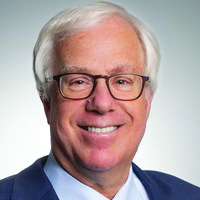By Jeff Robbins
“When I was a kid, I was shy,” Ira Glasser, the longtime head of the American Civil Liberties Union, told a Canton, Massachusetts, audience last week. It seemed hard to believe. A nonlawyer and proud of it, Glasser led the ACLU from 1978 until 2001 and is credited by the organization for having transformed it “from a mom-and-pop style operation concentrated mainly in a few large cities to a nationwide civil liberties powerhouse.”
“The first time I had to speak in public,” Glasser said, “was teaching kids calculus. It taught me how to explain complicated subjects to people who were really not interested. All of that ended up being good training for talking to people about the Bill of Rights.”
The right to free speech is perhaps the best known of the First Amendment rights; it is also perhaps the most controversial. Disrespected in some quarters, distorted in others, the right to speak freely occupied much of Glasser’s career as he fought contentious battles to ensure that it is both preserved and protected from hijacking by those wishing to undermine democracy.
On university campuses, where once administrators wielded their power to block speech about civil rights or ending the war in Vietnam, now self-styled “progressive” students wield theirs to attempt to block speech that they believe deviates from what they have decreed is politically acceptable. First Amendment legend Floyd Abrams has said that the greatest threat to American free speech comes presently not from government but from within academia, principally from “a minority of students who strenuously and, I think it is fair to say, contemptuously disapprove of the views of speakers whose view of the world is different from theirs, and who seek to prevent those views from being heard.”
Glasser, as indefatigable a fighter for social justice as any other American over the last half-century, is similarly concerned. “I was surprised,” he wrote last year about a law school appearance, “to learn that many in the audience self-identified as ‘progressives’ and believed that it was both desirable and constitutional to ban what they called ‘hate speech’.”
Over in Trumpland, the former president has invoked the First Amendment as a defense against lawsuits seeking to hold him liable for his role in the Jan. 6 attack on the U.S. Capitol that left 140 Capitol Police injured and resulted in several deaths. One of the pending claims is that he conspired with others to use force, intimidation and/or threats to prevent federal officials — Congress — from carrying out their duties: certifying the 2020 presidential election. This claim would appear to be not only straightforward, but obvious: The express, and expressed, point of the defendants’ fiery exhortations was to drive the mob down to the Capitol for that very purpose.
Trump and his defense team argue, however, that holding them liable would penalize the exercise of First Amendment rights. This concern for the right of free speech is very rich indeed coming from a former president who fired every federal official he could for speaking out about misconduct in his administration, but hypocrisy ranks so low on the list of Trump’s affronts that it hardly seems worthy of mention.
Those who directed the mob to attack Congress have a problem much bigger than hypocrisy. The Supreme Court ruled decades ago that there is no First Amendment protection for speech that is “directed to inciting or promoting lawless action and is highly likely to incite or produce such action.” Not for the first time, the shy math student who wasn’t a born public speaker puts it best. “Just because you use words when you’re doing something violent doesn’t give you the protection of the First Amendment,” says Glasser.
The First Amendment may be caught in a crossfire, but if we have more than a fighting chance of keeping it robust, it is in no small part thanks to American heroes like Ira Glasser, who pushed and prodded and pressed so that it would neither be eroded nor taken for granted.
Jeff Robbins, a former assistant United States attorney and United States delegate to the United Nations Human Rights Council in Geneva, was chief counsel for the minority of the United States Senate Permanent Subcommittee on Investigations. An attorney specializing in the First Amendment, he is a longtime columnist for the Boston Herald, writing on politics, national security, human rights and the Mideast.




